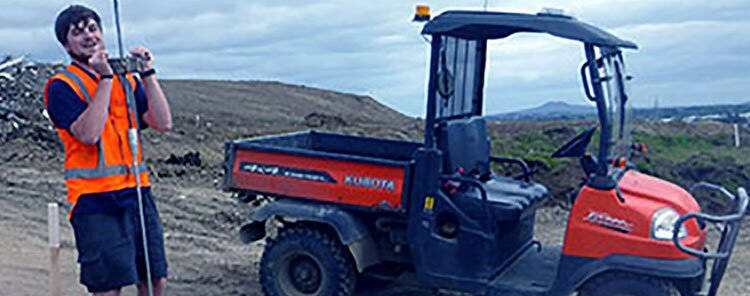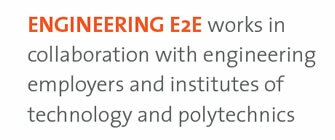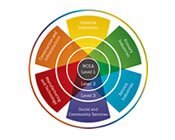INDUSTRY LINKS CASE STUDY
Why offer a scholarship? Here are some good reasons

Scholarships provide support to tertiary students, are a promotional tool and a recruitment strategy. We checked in with consulting firm Fraser Thomas to learn about how scholarships work for them. Could they also work for you?
Scholarships provide support to tertiary students, are a promotional tool and a recruitment strategy. We checked in with consulting firm Fraser Thomas to learn about how scholarships work for them. Could they also work for you?
Why offer a scholarship?
Scholarships help raise a company’s profile within the wider community and amongst engineering students (who form the pool of potential employees). As part of a recruitment programme, scholarships are another way to find people with the talent the company requires. Many engineering companies include summer holiday work for students receiving their scholarship. As well as benefitting the student, who has guaranteed holiday work along with any work experience component they need to achieve their qualification, the employer can see what they’re like in the work place.
Consulting firm Fraser Thomas has had a scholarship programme for some years. Managing Director Greg Maddren tells us it’s proved very beneficial for everyone involved. Fraser Thomas normally offers one scholarship per year but occasionally, depending on the quality of the candidates and its own needs, will offer two. Their objective is to offer full employment to the recipient when they graduate.
What’s involved?
Scholarships vary depending on the conditions that the funding body wants to apply, such as costs, duration and engineering discipline. Some companies partially or fully fund a student’s course fees, while others include an allowance to cover associated costs of tertiary study. A scholarship might be valid for one year only, or continue through the two to four years required to complete the qualification.
Some scholarships are aimed at first year students. This encourages school leavers (or others) to choose engineering as a career, and familiarises students, parents and schools with prospective workplaces. Other undergraduate scholarships are awarded to second, third or fourth-year students – the advantage for a company being that they can choose students who are doing well in their tertiary studies. There are also scholarships aimed at postgraduate students.
For short-term summer scholarships, employers will often get students to work on specific research or projects, possibly something outside of the organisation’s normal work.
Sometimes a company provides scholarships ‘in house’, rather than opening them up to the wider public. They offer existing staff the opportunity to study towards an engineering qualification or, in the case of those with a New Zealand Diploma in Engineering (NZDE) or Bachelor of Engineering Technology (BEngTech), towards a higher qualification.
Work experience
 Scholarship work experience benefits both recipient and provider. “It enables us to develop a relationship with the student and vice versa,” Greg says. “They get an understanding of how an engineering consultancy works, experience of the ‘real world’, and we can assess their value to us if we employ them.”
Scholarship work experience benefits both recipient and provider. “It enables us to develop a relationship with the student and vice versa,” Greg says. “They get an understanding of how an engineering consultancy works, experience of the ‘real world’, and we can assess their value to us if we employ them.”
Along with learning on the job, students receive mentoring from experienced staff. And employers have the opportunity to train a potential fulltime employee in the specific skills or processes that the company requires.
A worthwhile investment
Greg says the scholarship experience has been a positive one for Fraser Thomas, and the calibre of people applying is high. “While a scholarship is a fixed cost to a company, it does bear fruit. It would be unusual for it to not be a very worthwhile investment. All in all, it’s meeting our expectation.”
Community involvement
For some companies, funding a scholarship is their way of contributing to the community while also raising the company profile and recruiting staff. This might also involve targeting scholarships for school leavers in a specific town or region, or providing them to local iwi or children of employees.
Targeting Level 6-7 engineering students
At present, many of the engineering scholarships available are for students working towards a Bachelor of Engineering (Honours) degree. Given that there is a greater shortage of NZDE and BEngTech graduates, perhaps now is a good time to consider investing in more scholarships at ITP level?
The recently released E2E report Engineering Barriers and Responses (Research First, October 2014) notes that encouraging more students to study engineering at ITPs is a significant challenge, partly due to students not understanding what a career in engineering means; preference towards studying at university; and associating ITPs with diploma pathways only. Funding scholarships for Level 6-7 engineering students might be another way to highlight these pathways to a successful engineering career.
Read Engineering Barriers and Responses
If you’d like to find out more about the Fraser Thomas scholarship programme, contact Head Office: http://www.fraserthomas.co.nz/ContactUs/contactuspapatoetoe.php. Our thanks to Greg for his time and advice.
If you have any questions, get in touch: .
November 2014
 |
 |
 |
||
 |
||||
 |
||||
 |






